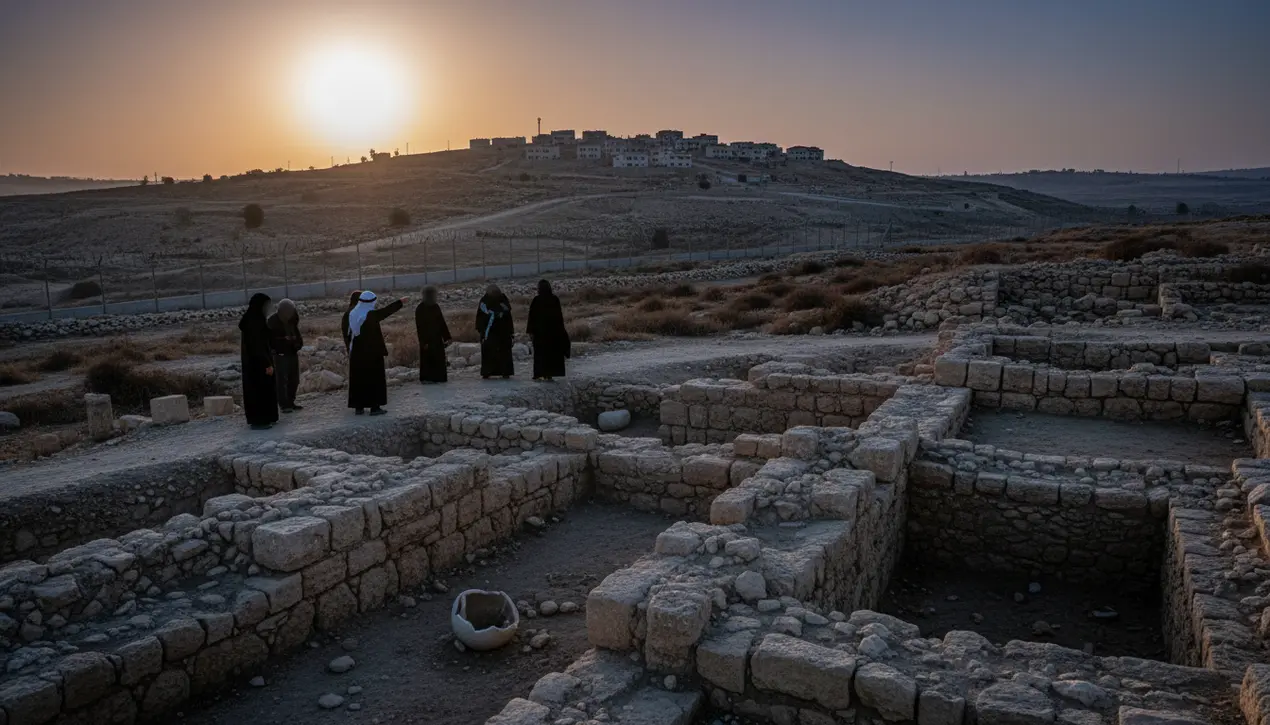
Politicsconflict & defenseMilitary Operations
Israel to Seize Major Archaeological Site in West Bank
OL
Oliver Scott
1 day ago7 min read3 comments
The Israeli government's decision to formally seize a major archaeological site in the occupied West Bank represents a significant escalation in a long-standing strategy that analysts warn systematically alters facts on the ground, potentially foreclosing future diplomatic solutions. This move, announced with little fanfare, coincides almost precisely with the establishment of a new, illegal settler outpost near Bethlehem—a tactical synchronization that suggests a coordinated effort to consolidate territorial control while the international community remains distracted by other crises.For a political risk analyst like myself, this isn't merely another headline; it's a calculated maneuver with profound implications. The specific site in question, while not named in the initial brief, fits a well-established pattern of using archaeology as a political instrument, where historical claims rooted in biblical narratives are leveraged to justify contemporary land appropriation.This creates a dual-layer of entrenchment: first, the physical presence secured by the state declaration, and second, the ideological justification that makes any future concession appear as a surrender of heritage, not just territory. The timing is critically instructive.The Netanyahu government faces mounting international pressure, including from its staunchest ally the United States, to rein in rampant settler violence against Palestinian communities. By executing this seizure concurrently with a new outpost, the government appears to be playing a multi-level game—offering rhetorical assurances on curbing extremist violence to Washington while simultaneously empowering the very settlement enterprise that fuels that violence.This creates a classic risk scenario of policy divergence, where public statements and on-the-ground actions move in opposite directions, increasing the likelihood of a sudden, destabilizing crisis. Historically, such land seizures have acted as flashpoints, not just for localized protests but for region-wide conflagrations.The precedent of Hebron's Ibrahimi Mosque/Cave of the Patriarchs, a site holy to both Muslims and Jews, looms large; its history is a grim reminder of how contested heritage can ignite prolonged conflict. The immediate consequence will likely be a further erosion of the Palestinian Authority's already diminished legitimacy, as it proves powerless to protect land and history.In the medium term, this action poisons the well for any revived peace process, effectively carving out the geographical contiguity necessary for a viable Palestinian state. From a scenario-planning perspective, the most probable outcome is a continued, slow-burn annexation, met with international condemnation but little concrete action.However, the high-risk, low-probability scenario involves a triggered response from other regional actors or a catastrophic episode of violence at the site itself that forces a military confrontation. The calculus in Jerusalem seems to be that the strategic gain of cementing control outweighs the diplomatic cost—a bet that, given the current global political fragmentation, may unfortunately prove correct.
#Israel
#West Bank
#archaeology
#settlements
#international law
#featured
Stay Informed. Act Smarter.
Get weekly highlights, major headlines, and expert insights — then put your knowledge to work in our live prediction markets.
Comments
Loading comments...
© 2025 Outpoll Service LTD. All rights reserved.